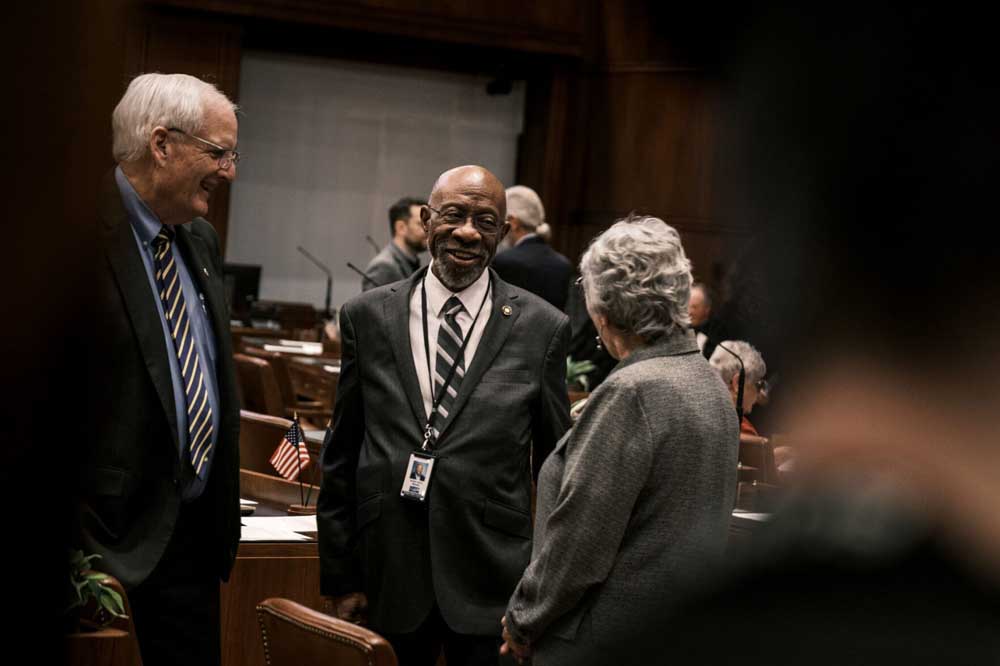Oregon Senate passes bill cracking down on campaign deepfakes
Published 9:45 am Tuesday, February 27, 2024

- Sen. Aaron Woods, D-Wilsonville, sponsored a bill to crack down on artificial intelligence in campaigns.
As they head into an election cycle that’s already included at least one high-profile attempt to use artificial intelligence to influence voters, Oregon lawmakers voted Monday to crack down on so-called deepfakes.
The Senate voted 23-7 on Monday to pass Senate Bill 1571, which would require campaigns to disclose whether their campaign materials use artificial intelligence or other digital technology to manipulate an image, audio or video in an attempt to influence voters. The proposal is similar to laws on the books in a few states, including Washington, as well as proposals pending in dozens more statehouses this year.
Sen. Aaron Woods, D-Wilsonville, said the bill seeks to address a rapidly emerging threat with an immense potential for harm. He noted that AI is already being used in campaign materials: On Sunday, a political consultant for long shot Democratic presidential candidate Dean Phillips admitted he was behind a robocall with a fake recording of President Joe Biden telling voters not to participate in the New Hampshire primary.
“These synthetic media can be used to create false narratives, impersonate public figures and manipulate public opinion in ways that aren’t immediately discernible to the average viewer,” Woods said.
SB 1571 would allow the secretary of state, or the attorney general in instances that involve candidates for secretary of state, to seek a court injunction blocking the use of campaign materials that use artificial intelligence and don’t include a disclosure. Violating the law could carry a fine up to $10,000 for each instance.
Sen. Jeff Golden, an Ashland Democrat who spent his career in broadcasting, said at first no one took the threat posed by artificial intelligence or digital manipulation seriously because the fakes weren’t well done. But as the technology improves, it’s harder to tell real images, audio and video from fakes. For now, Woods has the best possible solution to a complicated problem, Golden said.
“We are now at a point in this technology where public figures can be made to say things they never said or never believed,” he said.
Sen. Kim Thatcher, R-Keizer, said she intended to vote for the bill on Monday until she read it more closely. She joined six other Republicans in voting against it.
Thatcher said she has concerns about a section of the bill that exempts newspapers, magazines, online news outlets and other websites from liability if they publish a campaign communication that contains artificial intelligence or digital manipulations — but only if the news outlet or website includes a statement that the campaign material does not accurately represent a ballot measure or candidate.
“We need to proceed carefully before we have basically one person, the secretary of state, deciding whether something is true or false or represents a candidate or ballot measure correctly,” Thatcher said.
Sen. Dennis Linthicum, R-Klamath Falls, also voted against the bill, though his reasoning was more about fears that artificial intelligence is being used by “the ruling elite” to influence people in Oregon and globally.
“That may make everyone think I have a tin foil hat on my head, but I don’t,” he said. “I have a well-reasoned, logical argument.”
Senate Bill 1571 had its first reading in the House on Tuesday. Representatives have less than two weeks to pass bills.






